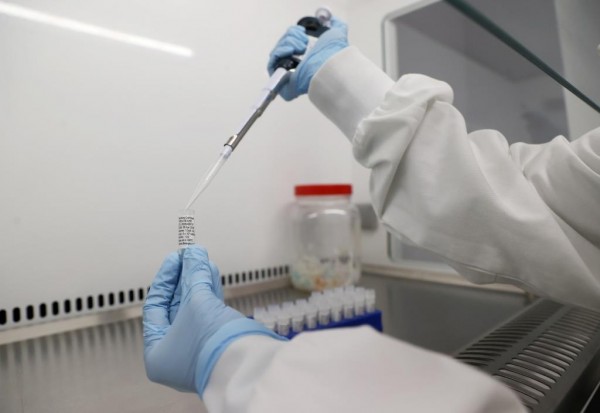COVID-19 Vaccine: How Soon Can We Expect It?

It has been many months since China announced they had recognized novel coronavirus spreading in Wuhan City. From that day on, anticipation and longing for a vaccine have only grown fast week after week.
To help address the growing apprehension, Caroline Chen talked to several people related to the development, manufacturing, selling, and administration of vaccines. These included pediatricians, pharmaceutical manufacturers, scientists, and even the Food and Drug Administration and the National Institutes of Health staff.
And, for those visualizing the day when a COVID-19 vaccine obtains approval, and this global health crisis will be over, experts have honestly said that it is less likely to happen soon. However, they added, when the vaccine comes, "It will be the start of the pandemic's end."
ALSO READ: Coronavirus Update: Companies and Their Progress on the Development of a Vaccine
COVID-19 Scientists' Optimism on Vaccine Development
Chen said, most, if not all, scientists she spoke to were hopeful that vaccine makers would be able to develop the drug to treat the virus.
This, the specialists explained, is not just because many scientists and pharmaceutical firms are working on the initiative, and a huge cost is spent on it. The said development gives a more significant chance of success, too.
The objective of the developers of the vaccine is to simulate infection as close to natural as possible, minus putting a person's health condition at risk.
There are a lot of ways to simulate the infection. First is to give an individual a weakened or dead virus. Another way is to present the immune system as just part of the disease.
A lot of vaccine makers are developing the said drugs engaging only the so-called "spike protein," the portion on the virus' surface attaching to the human cell it attempts to infect.
According to Dr. John Mascola from the vaccine Research Center at the NIH's National Institute of Allergy and Infectious Disease, he is optimistic because when the natural immune system of an individual is healthy, it then gets the capability of handling the contagion.
More often than not, Mascola said that people are recovering from COVID-19 because their immune system has ultimately cleared the infection.
He opposed the COVID-19 to HIV for which scientists have been struggling to develop an effective vaccine. Specifically, in HIV, the "natural immune system" is not effective, so people contract AIDS.
In the case of COVID-19, only a natural infection that's close enough can be simulated, and it is possible that a vaccine is effective. And in this case, the medical expert said, COVID-19 is "not the flu, and that's good news."
DON'T MISS THIS: Hydroxychloroquine: COVID-19 Experimental Drug Trials Halted by WHO
Not 100% Effective, but Good Enough
When researchers discuss a vaccine's effectiveness, two common definitions are considered. One, according to clinical studies, is "preventing people from getting ill".
The other definition is that vaccines prevent individuals "from getting infected at all." In the case of COVID-19, medical experts said, this can be a nontrivial dissimilarity.
It's common knowledge that a lot of people tested positive with the virus may be considered "asymptomatic carriers." Meaning, they never felt or suffered from any COVID-19 symptom, such as cough or fever, even though they are indeed infected with COVID-19.
Clearly, a vaccine that can considerably decrease illness, medical experts said, would be fantastic. If a vaccine can lessen the virus's severity to make it less likely to be fatal, reduce hospital confinement, and minimize indications for people who contract it, it is an advantage.
And, in terms of what to expect in terms of approval, the vaccine education center of the Children's Hospital of Philadelphia's Dr. Paul Offit from Children's Hospital of Philadelphia said that it should be at least half the efficacy against signs and symptoms, and 70 percent against "moderate to severe illness" to keep a person out of the hospital.
IN CASE YOU MISSED THIS: Redemsivir Still in Shortage, FDA Says Combined With Hydroxychloroquine Is Dangerous
Jun 22, 2020 09:23 AM EDT




